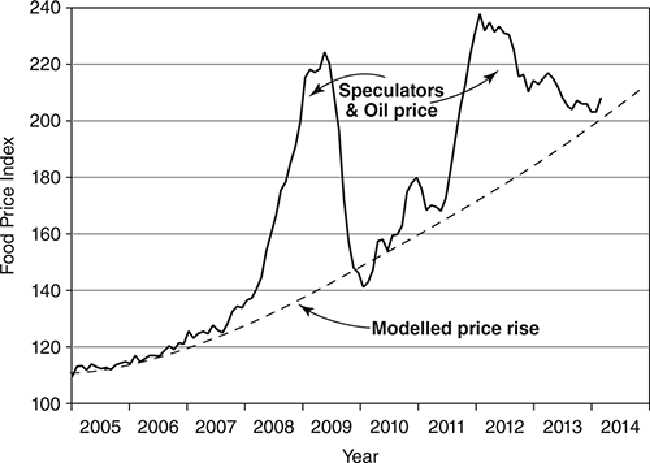Geoscience Reference
In-Depth Information
24. Food prices. 2004‒13
Another possible future threat to human health is the transmission of infectious diseases,
which is directly affected by climatic factors. Climate change will particularly influence
vector-borne diseases, that is diseases that are carried by another organism, for example
malaria, which is carried by mosquitoes. Infective agents and their vector organisms are
sensitive to factors such as temperature, surface-water temperature, humidity, wind, soil
moisture, and changes in forest distribution. It is, therefore, projected that climate change
and altered weather patterns would affect the range (both altitude and latitude), intensity,
and seasonality of many vector-borne and other infectious diseases. For example, there is
a strong correlation between increased sea-surface temperature and sea level, and the an-
nual severity of the cholera epidemics in Bangladesh. With predicted future climate
change and consequent rise in Bangladesh's relative sea level, cholera epidemics could
become devastating.
In general, then, increased warmth and moisture caused by climate change will enhance
transmission of diseases. But while the potential transmission of many of these diseases
increases in response to climate change, we should remember that our capacity to control
the diseases will also change. New or improved vaccination can be expected; some vector
species can be constrained by use of pesticides. Nevertheless, there are uncertainties and

